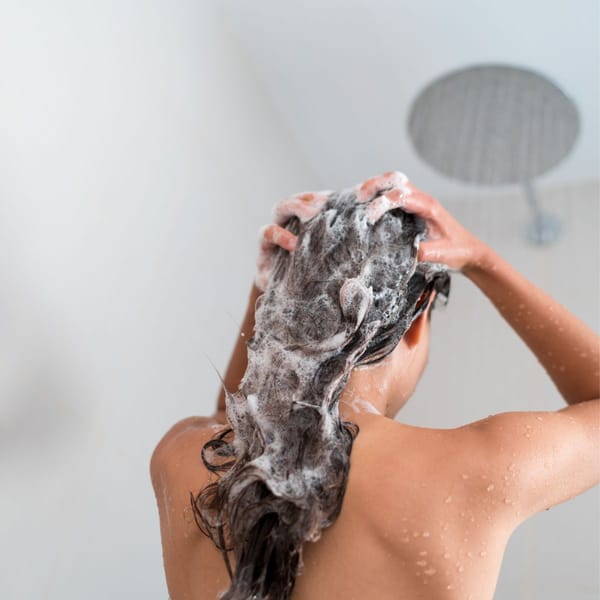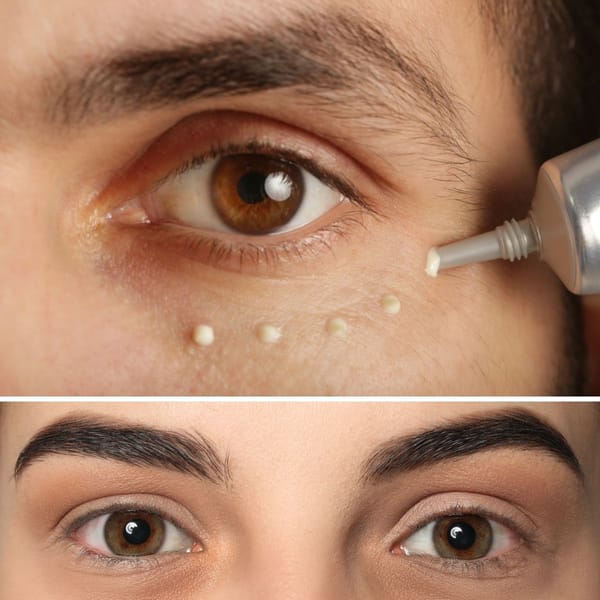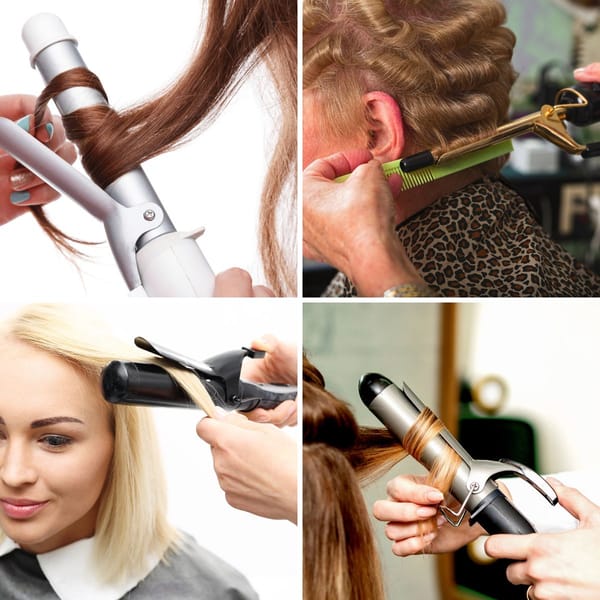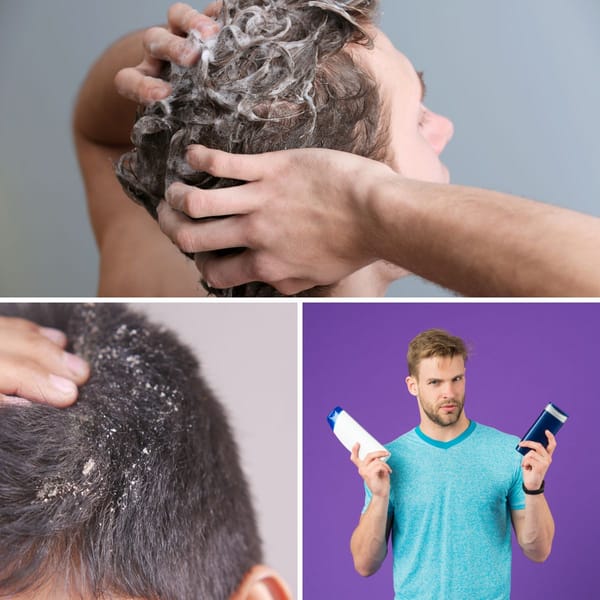Key Takeaways:
- Understanding Your Skin Type: Different skin types require different formulations for effective wrinkle reduction.
- Key Ingredients Matter: Ingredients like hyaluronic acid, retinol, and vitamin C are crucial in combating wrinkles.
- Consistency is Key: Regular use of the right moisturizer can significantly improve skin texture and reduce the appearance of fine lines and wrinkles.
Introduction
Wrinkles are an inevitable part of the natural aging process, but that doesn't mean we can't take steps to minimize their appearance. With a plethora of wrinkle creams and moisturizers on the market, finding the best one can feel like searching for a needle in a haystack. This article aims to demystify the process and help you find the best moisturizer for wrinkles, tailored to your specific skin type and needs.
Understanding Wrinkles and Aging Skin
Wrinkles are creases, folds, or ridges in the skin that typically appear as we age. They are most commonly found on areas of the body that receive the most sun exposure, such as the face, neck, hands, and forearms. The primary cause of wrinkles is the natural aging process, but other factors like sun damage, smoking, and repeated facial expressions can accelerate their formation.
As we age, our skin loses its elasticity and becomes thinner and drier. This is due to a decrease in the production of natural oils and a reduction in collagen and elastin fibers, which are essential for maintaining skin's firmness and elasticity. Understanding these factors is crucial in selecting the best moisturizer for wrinkles.
The Role of Moisturizers in Wrinkle Reduction
Moisturizers play a vital role in maintaining skin health and reducing the appearance of wrinkles. They work by hydrating the skin, improving its texture, and creating a barrier that locks in moisture. This helps to plump up the skin, making fine lines and wrinkles less noticeable. Additionally, many moisturizers contain active ingredients that can stimulate collagen production and improve skin tone.
When choosing a moisturizer for wrinkles, it's essential to consider your skin type and the specific needs of your skin. For example, those with dry skin may benefit from a rich, hydrating cream, while those with oily skin might prefer a lightweight, non-comedogenic formula.
Essential Ingredients in Anti-Wrinkle Moisturizers
Hyaluronic Acid
Hyaluronic acid is a powerful humectant that attracts and retains moisture in the skin. It helps plump the skin, reducing the appearance of fine lines and wrinkles.
Retinol
Retinol, a derivative of vitamin A, is a gold standard in anti-aging skincare. It stimulates collagen production and accelerates skin cell turnover, improving skin texture and tone.
Vitamin C
Vitamin C is a potent antioxidant that brightens the skin, reduces dark spots, and promotes collagen production. It helps protect the skin from free radical damage caused by sun exposure and pollution.
Peptides
Peptides are short chains of amino acids that signal the skin to produce more collagen. They help improve skin firmness and elasticity.
Glycolic Acid
Glycolic acid, an alpha hydroxy acid (AHA), exfoliates the skin, removing dead skin cells and revealing smoother, more radiant skin. It also helps improve skin texture and tone.
Shea Butter
Shea butter is a rich moisturizer that nourishes and hydrates the skin. It is especially beneficial for dry and mature skin types.
Best Moisturizers for Different Skin Types
Dry Skin
For those with dry skin, it's essential to choose a moisturizer that provides intense hydration. Look for products that contain ingredients like hyaluronic acid, shea butter, and glycerin, which can help to lock in moisture and keep the skin hydrated. A rich, creamy formula is ideal for dry skin, as it can provide long-lasting hydration and improve skin texture.
Oily Skin
If you have oily skin, it's important to choose a lightweight, non-comedogenic moisturizer that won't clog pores. Look for products that contain ingredients like salicylic acid and niacinamide, which can help to control oil production and reduce the appearance of pores. A gel-based formula is often a good choice for oily skin, as it provides hydration without feeling heavy or greasy.
Sensitive Skin
For those with sensitive skin, it's crucial to choose a moisturizer that is gentle and free from potential irritants. Look for products that are fragrance-free and contain soothing ingredients like aloe vera and chamomile. A hypoallergenic formula is ideal for sensitive skin, as it can help to reduce the risk of irritation and keep the skin calm and hydrated.
The Importance of Consistency
Consistency is key when it comes to reducing the appearance of wrinkles. It's important to use your chosen moisturizer regularly, both morning and night, to see the best results. Additionally, incorporating other anti-aging products into your skincare routine, such as serums and eye creams, can help to enhance the effects of your moisturizer and provide even better results.
How to Apply Moisturizer for Maximum Effectiveness
To get the most out of your moisturizer, it's important to apply it correctly. Start by cleansing your skin to remove any dirt and impurities. Then, apply a small amount of moisturizer to your face and neck, using gentle, upward strokes. Be sure to pay extra attention to areas where wrinkles are most prominent, such as the forehead and around the eyes.
The Role of Sunscreen in Wrinkle Prevention
One of the most effective ways to prevent wrinkles is to protect your skin from sun damage. UV rays can accelerate the aging process and cause premature wrinkles, so it's essential to wear sunscreen every day, even on cloudy days. Look for a broad-spectrum sunscreen with an SPF of at least 30, and be sure to reapply it every two hours if you're spending time outdoors.
The Benefits of a Healthy Lifestyle
In addition to using the right skincare products, maintaining a healthy lifestyle can also help to reduce the appearance of wrinkles. Eating a balanced diet rich in antioxidants, staying hydrated, and getting regular exercise can all contribute to healthier, more youthful-looking skin. Additionally, avoiding smoking and limiting alcohol consumption can help to prevent premature skin aging.
The Best Drugstore Wrinkle Creams
You don't have to break the bank to find an effective wrinkle cream. Many drugstore brands offer high-quality products that can help to reduce the appearance of fine lines and wrinkles. Look for products that contain key ingredients like retinol, hyaluronic acid, and vitamin C, and be sure to read reviews to find the best options for your skin type.
The Role of Professional Treatments
In addition to using over-the-counter products, professional treatments can also help to reduce the appearance of wrinkles. Treatments like chemical peels, microdermabrasion, and laser therapy can all help to improve skin texture and stimulate collagen production. If you're considering a professional treatment, it's important to consult with a board-certified dermatologist to determine the best option for your skin.
The Importance of a Customized Skincare Routine
Everyone's skin is different, so it's important to create a skincare routine that is tailored to your specific needs. This may involve using different products in the morning and evening, or incorporating additional treatments like serums and masks. By taking the time to understand your skin and its unique needs, you can create a routine that helps to reduce the appearance of wrinkles and keep your skin looking its best.
The Role of Sleep in Skin Health
Getting enough sleep is essential for maintaining healthy skin. When you sleep, your body goes into repair mode, which can help to improve the appearance of fine lines and wrinkles. Aim for at least seven to eight hours of sleep each night, and try to establish a regular sleep routine to ensure you're getting the rest you need.
The Importance of Hydration
Staying hydrated is crucial for maintaining healthy, youthful-looking skin. Drinking plenty of water can help to keep your skin hydrated from the inside out, which can improve its texture and reduce the appearance of fine lines and wrinkles. Aim to drink at least eight glasses of water each day, and consider incorporating hydrating foods like fruits and vegetables into your diet.
The Role of Stress in Skin Aging
Stress can have a significant impact on the health of your skin. When you're stressed, your body produces more cortisol, which can break down collagen and lead to the formation of wrinkles. Finding ways to manage stress, such as through exercise, meditation, or spending time with loved ones, can help to keep your skin looking its best.
The Role of Genetics in Skin Aging
Genetics can play a significant role in how your skin ages. If your parents or grandparents had wrinkles at an early age, you may be more likely to develop them as well. While you can't change your genetics, you can take steps to protect your skin and reduce the appearance of wrinkles by using the right skincare products and maintaining a healthy lifestyle.
The Benefits of Exfoliation
Regular exfoliation can help to improve the texture of your skin and reduce the appearance of fine lines and wrinkles. By removing dead skin cells, you can help to reveal smoother, more youthful-looking skin. Look for exfoliating products that contain ingredients like alpha hydroxy acids (AHAs) or beta hydroxy acids (BHAs), and be sure to exfoliate gently to avoid irritating your skin.
The Role of Collagen in Skin Health
Collagen is a protein that is essential for maintaining the firmness and elasticity of your skin. As we age, our bodies produce less collagen, which can lead to the formation of wrinkles. Using skincare products that contain ingredients like retinol and peptides can help to stimulate collagen production and improve the overall appearance of your s
The Benefits of Using a Night Cream
Using a night cream can help to provide your skin with the hydration and nutrients it needs to repair itself while you sleep. Look for products that contain ingredients like hyaluronic acid, retinol, and peptides, which can help to reduce the appearance of fine lines and wrinkles. Applying a night cream before bed can help to keep your skin looking its best.
The Benefits of Using a Serum
Serums are lightweight, fast-absorbing liquids that can help to deliver active ingredients deep into your skin. Look for serums that contain ingredients like hyaluronic acid, vitamin C, and peptides, which can help to reduce the appearance of fine lines and wrinkles. Applying a serum before your moisturizer can help to enhance the effects of your skincare routine.
The Importance of a Fragrance-Free Formula
For those with sensitive skin, it's important to choose skincare products that are free from fragrances and other potential irritants. Fragrances can cause irritation and allergic reactions, which can lead to redness and inflammation. Look for products that are labeled as fragrance-free, and be sure to patch test new products before incorporating them into your routine.
The Benefits of Using a Moisturizing Cream
Using a moisturizing cream can help to keep your skin hydrated and improve its overall texture. Look for products that contain ingredients like hyaluronic acid, glycerin, and shea butter, which can help to lock in moisture and keep your skin looking smooth and supple. Applying a moisturizing cream twice a day can help to reduce the appearance of fine lines and wrinkles.
The Role of Glycolic Acid in Skin Health
Glycolic acid is an alpha hydroxy acid (AHA) that can help to exfoliate your skin and improve its texture. By removing dead skin cells, glycolic acid can help to reveal smoother, more youthful-looking skin. Look for skincare products that contain glycolic acid, and be sure to use them as directed to avoid irritation.
The Importance of a Non-Comedogenic Formula
For those with oily or acne-prone skin, it's important to choose skincare products that are non-comedogenic, meaning they won't clog your pores. Clogged pores can lead to breakouts and other skin issues, so look for products that are labeled as non-comedogenic. This can help to keep your skin clear and reduce the appearance of fine lines and wrinkles.
The Importance of a Lightweight Formula
For those with oily or acne-prone skin, it's important to choose skincare products that are lightweight and won't feel heavy or greasy on your skin. Look for products that are labeled as lightweight or oil-free, and be sure to apply them sparingly to avoid clogging your pores. This can help to keep your skin clear and reduce the appearance of fine lines and wrinkles.
The Benefits of Using a Collagen-Boosting Cream
Using a collagen-boosting cream can help to stimulate collagen production and improve the overall appearance of your skin. Look for products that contain ingredients like retinol, peptides, and vitamin C, which can help to boost collagen production and reduce the appearance of fine lines and wrinkles. Applying a collagen-boosting cream regularly can help to keep your skin looking firm and youthful.
The Role of Lactic Acid in Skin Health
Lactic acid is an alpha hydroxy acid (AHA) that can help to exfoliate your skin and improve its texture. By removing dead skin cells, lactic acid can help to reveal smoother, more youthful-looking skin. Look for skincare products that contain lactic acid, and be sure to use them as directed to avoid irritation.
The Importance of a Non-Irritating Formula
For those with sensitive skin, it's important to choose skincare products that are non-irritating and free from potential irritants. Look for products that are labeled as gentle or suitable for sensitive skin, and be sure to patch test new products before incorporating them into your routine. This can help to reduce the risk of irritation and keep your skin looking its best.
Building an Effective Anti-Aging Skincare Routine
Step-by-Step Guide
- Cleanse: Use a gentle cleanser to remove dirt, oil, and makeup.
- Exfoliate: Use a chemical exfoliant like glycolic acid 2-3 times a week to remove dead skin cells.
- Tone: Apply a toner to balance the skin’s pH and prepare it for further treatments.
- Treat: Use serums with active ingredients like vitamin C, hyaluronic acid, or peptides.
- Moisturize: Apply your chosen anti-wrinkle moisturizer to hydrate and protect the skin.
- Protect: Use a broad-spectrum sunscreen daily to prevent sun damage and premature aging.
Tips for Maximizing Results
- Consistency: Use your skincare products consistently to see the best results.
- Patience: Anti-aging products take time to show results, so be patient and give them a few weeks to work.
- Healthy Lifestyle: Maintain a healthy lifestyle with a balanced diet, regular exercise, and adequate sleep to support your skin’s health.
Frequently Asked Questions
1. How often should I apply wrinkle cream?
For best results, apply your wrinkle cream twice daily, once in the morning and once at night. Follow the instructions on the product packaging for specific application guidelines.
2. Can I use multiple anti-aging products together?
Yes, you can layer multiple anti-aging products, but it’s essential to do so in the correct order and be mindful of potential ingredient interactions. For example, apply serums before moisturizers and be cautious when using strong actives like retinol and AHAs together.
3. At what age should I start using anti-wrinkle products?
It’s never too early to start using anti-wrinkle products. Many dermatologists recommend beginning in your mid to late 20s as a preventive measure. Early use of products with antioxidants and sunscreen can help delay the signs of aging.
Conclusion
Choosing the best moisturizer for wrinkles involves understanding your skin type and selecting products with effective anti-aging ingredients. By incorporating the right products into your skincare routine, you can reduce the appearance of fine lines and wrinkles, maintaining a youthful and radiant complexion.







